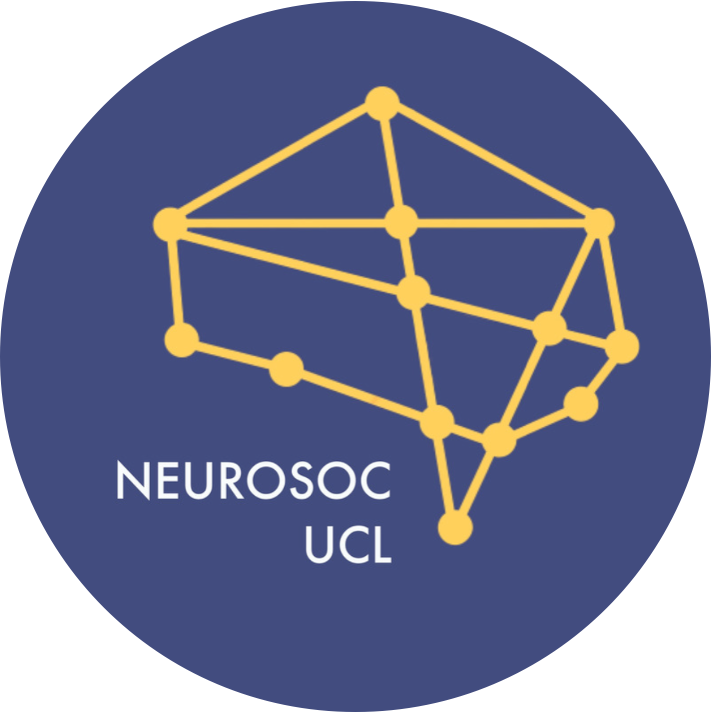Artificial intelligence, drugs and neuroethics...
We pride ourselves on hosting the best academic events on campus throughout the year. We also make sure to have our fair share of fun. If you have any suggestions for events you’d like to see, shoot us an email!
Subscribe to our Facebook page and newsletter to keep up-to-date!
A fantastic year for Neurosoc:
Neuro Freshers: Pub Golf
Our first event of the 2016/17 year was a society social for all our members, new and old, to get to know each other with some drinks! Pub golf is played with each drink acting as a 'hole', and each mouthful as a single stroke. Bonus points went to those in golfing attire, and a couple of the more committed members even brought along makeshift clubs. We spread the event over the UCL bars, so that new members could get to know the university's best spots for socialising.
October 2016
LSNeuroN Pub Quiz and Mingle
The London Students' Neuroscience Network, a collaborative network bringing the neuroscience societies of all London universities together, held their first event of the year - a neuroscience-themed quiz followed by some drinks and mingling. Each university's neuroscientists teamed up and pitted their wits against each other, reigniting some inter-university rivalries in a (mostly) light-hearted manner.
October 2016
Drugs & You: Cannabis
Our first talk of the year tackled a popular and contentious topic - recreational drugs and their potential clinical uses. Professor Valerie Curran, Director of the UCL Clinical Psychopharmacology Unit, and representatives from Drugsand.me discussed a range of matters related to recreational drugs, with particular emphasis on cannabis.
October 2016
Research Evenings I: Epilepsy and Channelopathies
For the first of our fortnightly research seminars, we were joined by recently graduated UCL alumna Helen Langley and UCL Professor of Neurology, Dimitri Kullmann. Helen, now on the Wellcome Trust Neuroscience PhD programme here at UCL, presented her final-year project on structure-function electrophysiology of AMPA receptors in the lab of Prof Stuart Cull-Candy. Prof Kullmann then presented on gene therapies for epilepsy, with a focus on channelopathies.
October 2016
Neuroscience Postgraduate Meet-up Social
We teamed up with the Queen Square Students Committee to host a welcome social for all UCL Neuroscience Masters and PhD students. Our postgraduate students took some time out from their busy lab schedules to mingle and socialise with like-minded neuroscience-enthusiasts over a few drinks provided by us free of charge!
October 2016
Addiction: from Neuroscience to Novel Treatments
We welcomed back Professor David Nutt, President of the European Brain Council and Professor of Neuropsychopharmacology at Imperial College London, to UCL for our biggest event of year. He shared recent evidence and research as well as his personal views on the future of treating addiction- from alcohol and tobacco to heroin and cocaine. This event was a hot-ticket and a huge success.
October 2016
Prof. St George-Hyslop on ALS (Motor Neurone Disease)
Following the ALS ice bucket challenge in the summer of 2014, which led to the breakthrough discovery of a new ALS-associated gene this year, we hosted Professor St George-Hyslop for a talk on motor neurone disease. We heard about the FUS protein’s ability to morph from liquid to gel, how this control protein synthesis in spinal cord neurones, and how this “goes further than it should have gone in ALS”. It was a spectacular talk from an esteemed scientist, and left everyone captivated.
December 2016
Research Evenings II: Intelligent Systems
This academic evening began with Matthew Philips (UCL MSci Neuroscience alumnus and current PhD student at the Sainsbury Wellcome Centre) presenting his final year project on deep-brain calcium imaging of the claustrum, in the lab of Professor Hausser. For the main event, Dr Adam Kampff spoke to us about recording neural activity in augmented reality, using next-generation silicon probes. Dr Kampff studies intelligent systems at UCL, and has been developing behavioural assays to recreate challenges the nervous system has specifically evolved to deal with.
December 2016
Google Deepmind Co-Founder Shane Legg
In collaboration with UCL Entrepreneurs, we welcomed the co-founder of the world leading artificial intelligence company DeepMind Technologies, sold to Google in 2014 for £400 million. In a wildly popular talk, Shane spoke to us about the company’s humble beginnings, their missions and achievements, and the future direction of the company and the field of AI more broadly.
January 2017
Psychadelic Psychiatry: Past, Present and Future
In another collaborative event, this time with UCL Society for the Application of Psychedelics (UCL SAP), we hosted a comprehensive discussion of psychedelic drugs - from their colourful history to their future therapeutic potential. Three of the first psychiatrists in the UK to prescribe these drugs since their ban 40 years ago joined us for the discussion. They also reported the positive results they have found thus far for MDMA and psilocybin in PTSD and depression respectively.
January 2017
A Unified Theory of the Brain by Karl Friston
We were thrilled to welcome the esteemed Professor Karl Friston to speak about his highly influential theory, and one of the few unified theories of brain function: the free energy principle. Intelligence, and even life itself, are natural consequences of his model. It has already found applications in machine learning, optimal decision theory, and many areas of cognitive neuroscience. Professor Friston was recently identified as the most influential neuroscientist in the world, by an algorithm tracking publications and their networks of citations.
February 2017
'Publish or Perish', with Prof. Colquhoun
Professor David Colquhoun joined us to present some of his strong opinions on the world of academia and pseudo-science. He believes bad statistics are running rampant in the biosciences, and that pressures and incentives in academia are to blame. As a highly successful molecular pharmacologist, Prof. Colquhoun is a prominent fighter of pseudoscience and managerialism, passionate for educating young scientists on good statistical practice, not to mention a very entertaining speaker!
March 2017








